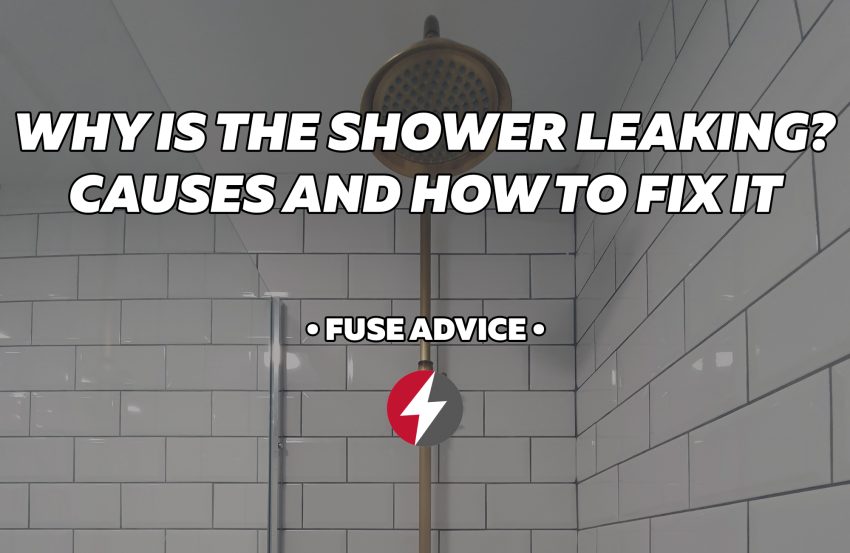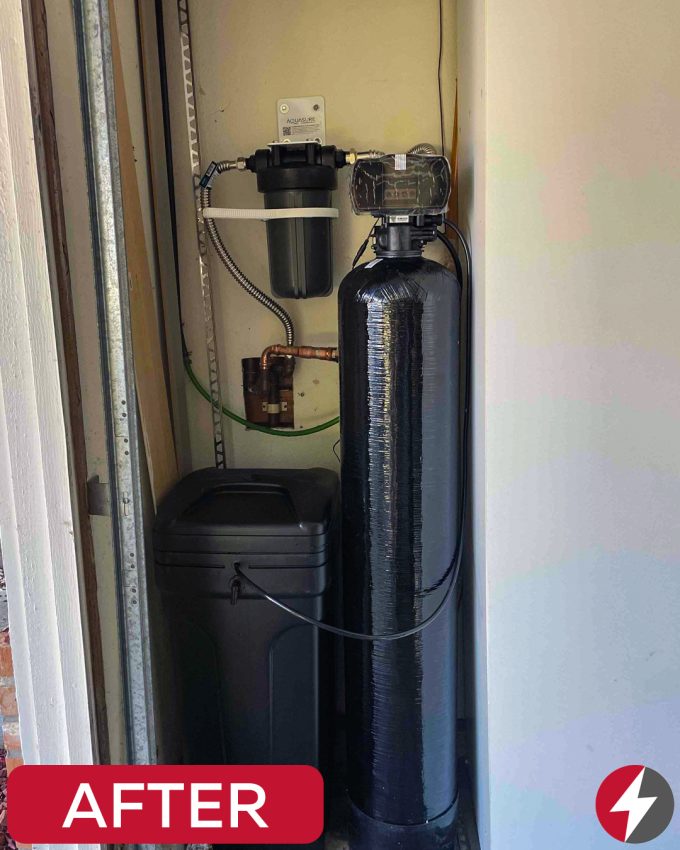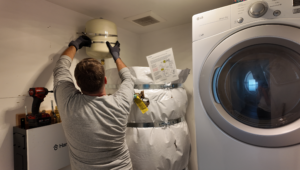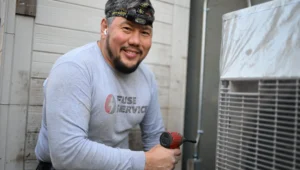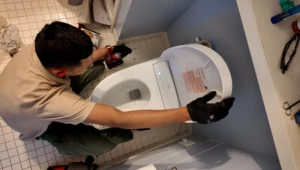Suddenly finding your shower head leaking, even when it’s turned off, can be quite frustrating. This isn’t just an inconvenience—it can waste water, increase your utility bills, and potentially lead to long-term damage in your bathroom. If you are already tired of the question “Why is my shower head leaking?” then this article is for you. Read it to learn everything about the most common causes of a leaky shower head and discover some options on how you can try to fix it yourself.
Understanding the Problem: Why You Should Fix a Leaky Shower Head Quickly
A leaky shower head may seem like a small and just annoying issue, but in reality it can have huge consequences. The constant dripping can waste large amounts of water over time. This surely will raise your bills and badly impact the environment. Moreover, the constant flow of water can lead to mold, water stains, and overall damage to your bathroom surfaces. Solving the problem of leaking shower head fast can help you avoid these problems and keep your bathroom in good condition.
Below are some common reasons for shower head leaking from head and how to fix them.
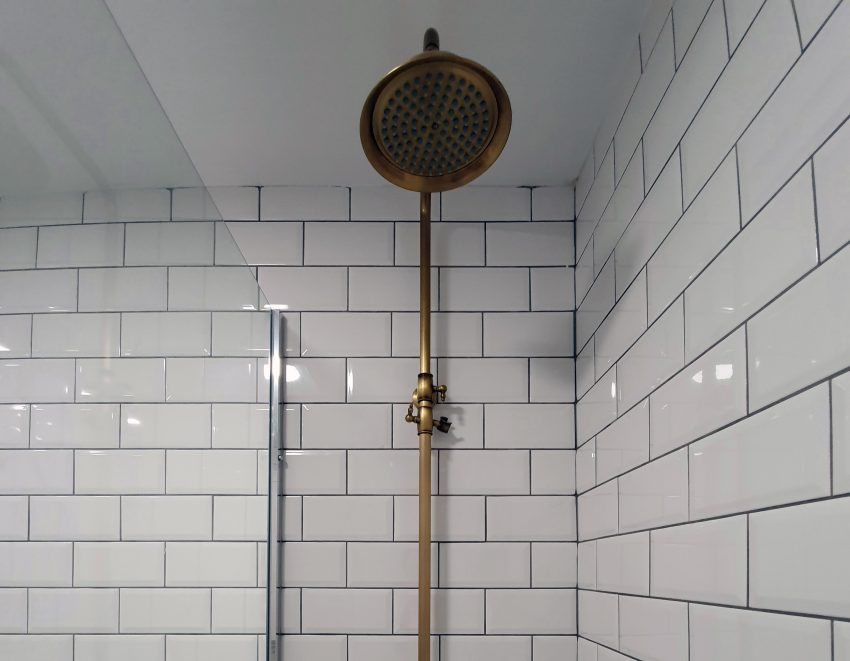
Common Causes of a Leaking Shower Head
To stop shower leaking from shower head, you first need to identify the cause. Here are the most common reasons it can be happening:
Worn-Out Washers and O-Rings
Washers and O-rings are rubber seals that help prevent water from escaping at connections. Over time, they can wear out, crack, or harden, leading to shower head leaking water.
Mineral Buildup and Clogged Nozzles
Hard water deposits like calcium and lime can accumulate inside the shower head. These things can easily clog the nozzles and limit the water flow. This buildup increases pressure, causing water to leak from other areas from which it’s not supposed to.
Loose or Damaged Components
Shower head leaking from shower head can also happen if parts within the shower head assembly are loose or damaged. A loose shower arm or improperly tightened connections can allow water to escape.
Faulty Diverter Valve
The diverter valve directs water flow between the tub faucet and the shower head. If it’s worn or malfunctioning, water may continue leaking from the shower head even when the tub is in use.
High Water Pressure
While high water pressure might make showers feel more powerful, it can put a lot stress on plumbing fixtures, damaging washers, seals, and valves over time, which leads you to search the answer to the question why is my shower head leaking.
How to Fix a Leaking Shower Head
Once you’ve discovered what exactly is the cause, it’s time to make the repairs. Here is what you should do:
- Replace Worn Washers and O-Rings
First of all, turn off the water supply to the shower. Use a wrench to remove the shower head and check the washers and O-rings inside. If they’re damaged or worn, replace them with new ones from a hardware store. This simple fix often stops leaks right away. - Clean the Shower Head Nozzles
To remove mineral buildup, detach the shower head and soak it in vinegar for a night. Use an old toothbrush to scrub away the remaining deposits, then put the shower head back to its place. This should help it function without leaks. - Tighten Loose Components
Inspect the shower arm and connectors for any looseness. Use pliers or a wrench to tighten everything securely. Wrapping Teflon tape around the threads before reattaching the shower head can provide added protection against leaks. - Fix or Replace the Diverter Valve
If the diverter valve is causing the leak, it may need to be cleaned or replaced. Consult your shower model’s manual for guidance, or hire a professional if you’re not confident in making the repair yourself. - Adjust Water Pressure
If high water pressure is the culprit, consider installing a pressure-reducing valve or switching to a pressure-compensating shower head to help regulate flow and reduce leaks.
Preventing Future Shower Head Leaks
Preventing leaks is easier and obviously cheaper than fixing them. Follow these tips to keep your shower head in good condition:
Regular Cleaning
Soak the shower head in vinegar every few months to prevent mineral buildup and keep it running smoothly.
Inspect Washers and O-Rings Regularly
Check these components every six months and replace them if they show signs of wear. Keeping these small parts in good shape can help prevent bigger problems.
Monitor Your Water Pressure
Maintain your home’s water pressure between 40-60 psi. If it’s too high, use a pressure regulator to avoid putting extra stress on your shower head and other fixtures.
If DIY methods aren’t resolving the issue or you suspect a more complicated problem, it’s a good idea to contact a professional plumber for an assessment and repair.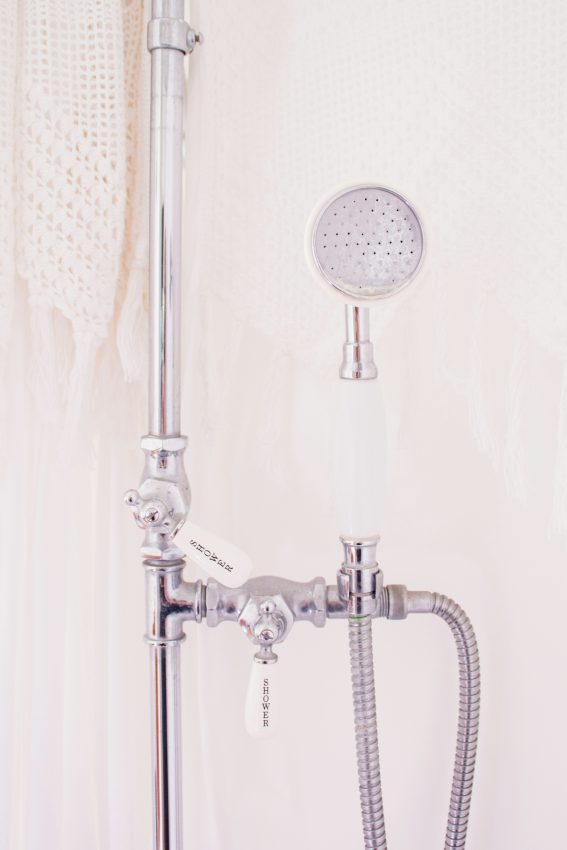
Conclusion
Although a leaking shower head might seem like a minor issue, fixing it promptly can prevent more significant problems in the future. Whether it’s replacing worn parts, cleaning mineral buildup, or adjusting water pressure, a little maintenance can go a long way. If you’re unable to fix the problem on your own, don’t hesitate to get professional help from plumbing contractors in San Jose—Fuse Service. Ready to fix that leak? Your bathroom—and your wallet—will thank you!
